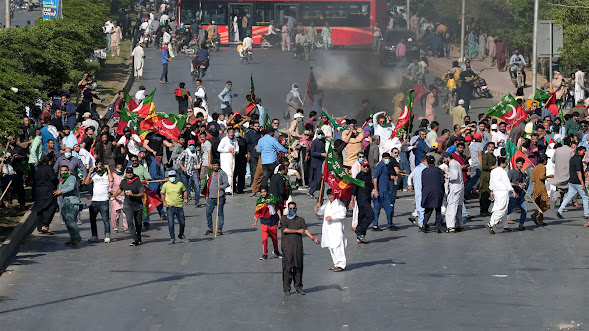Introduction:
The political landscape in Pakistan has been a subject of concern and speculation recently, with discussions revolving around the possibility of martial law being imposed. As neighboring countries, India has been closely monitoring the situation, observing the potential ramifications and implications that such a development could have on regional stability and relations. In this blog, we will delve into the tense situation in Pakistan from an Indian perspective, considering the potential effects on the bilateral dynamics and the broader regional context.
Historical Context:
India and Pakistan have had a tumultuous relationship since their partition in 1947. Political tensions, border disputes, and differing ideologies have often strained the relations between the two countries. The prospect of martial law in Pakistan raises apprehensions in India, as it could further complicate an already complex equation.
Regional Stability Concerns:
Stability in Pakistan is crucial for regional peace and stability. Any unrest or political instability in the country has a direct impact on the entire South Asian region. From an Indian perspective, a volatile Pakistan could lead to increased cross-border tensions, impacting the ongoing efforts to maintain peace and foster cooperation in the region.
Bilateral Relations:
India and Pakistan have a long history of political, economic, and security-related disagreements. The imposition of martial law in Pakistan could further strain bilateral relations, hindering any potential for dialogue or diplomatic engagement. It becomes crucial for both nations to find common ground and address their differences through peaceful means.
Impact on People:
In times of political uncertainty and unrest, it is the ordinary citizens who often bear the brunt. Any disruptions caused by martial law in Pakistan could have humanitarian consequences, including restrictions on civil liberties, freedom of expression, and potential economic repercussions. The well-being and aspirations of the people should always remain at the forefront of any political decision-making process.
Amidst the concerns and uncertainties, the need for stability and dialogue cannot be overstated. It is in the
interest of both India and Pakistan to work towards resolving their differences through peaceful means, engaging in constructive dialogue, and fostering an environment of mutual understanding and cooperation.
Conclusion:
As an Indian perspective on the tense situation in Pakistan, it is essential to acknowledge the significance of a stable and peaceful neighbor. The concerns surrounding martial law emphasize the need for both countries to prioritize dialogue, address long-standing issues, and work towards building a foundation of trust. Regional stability and the well-being of the people should remain the central focus in order to pave the way for a prosperous and harmonious South Asia.






0 Comments